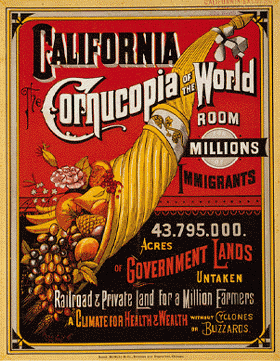| << Chapter < Page | Chapter >> Page > |
After reading this module, students should be able to
The 1987 United Nations Brundtland definition of sustainability embodies an intergenerational contract : to provide for our present needs, while not compromising the ability of future generations to meet their needs. It’s a modest enough proposal on the face of it, but it challenges our current expectations of the intergenerational contract: we expect each new generation to be better off than their parents. Decades of technological advancement and economic growth have created a mindset not satisfied with “mere” sustainability. We might call it turbo-materialism or a cornucopian worldview: namely that the earth’s bounty, adapted to our use by human ingenuity, guarantees a perpetual growth in goods and services. At the root of the cornucopian worldview lies a brand of technological triumphalism, an unshakeable confidence in technological innovation to solve all social and environmental problems, be it world hunger, climate change, or declining oil reserves. In sustainability discourse, there is a wide spectrum of opinion from the extremes of cornucopian optimism on one side and to the doom-and-gloom scenarios that suggest it is already too late to avert a new Dark Age of resource scarcity and chronic conflict on the other.

For every generation entering a Dark Age, there were parents who enjoyed a better life, but who somehow failed to pass along their prosperity. No one wants to fail their children in this way. To this extent, biology dictates multigenerational thinking and ethics. Though it might not always be obvious, we are all already the beneficiaries of multi-generational planning. The world-leading American higher education system, for example, depends upon an intergenerational structure and logic—a financial and human investment in the future committed to by multiple generations of Americans going back to the 19 th century. But conversely, in terms of vulnerability, just as higher education in the United States is neither necessarily permanent nor universal, but a social institution built on an unwritten contract between generations, so the lifestyle benefits of advanced society as we know it will not simply perpetuate themselves without strenuous efforts to place them on a sustainable footing.

Notification Switch
Would you like to follow the 'Sustainability: a comprehensive foundation' conversation and receive update notifications?